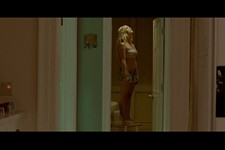What's the Score?
Brian Satterwhite talks on the film composition game
By Kimberley Jones, Fri., July 15, 2011
The Austin Film Society's ongoing Moviemaker Dialogue series may be the cheapest, most well-rounded way around a film school education. Want to know how to navigate the festival circuit? What about the tricks of low-budget producing? How about a crash course in accounting for filmmakers? Moviemaker Dialogue has you covered. The guest speakers at Monday's chat will be dropping some knowledge, just like at every other series event, but seeing as the topic at hand is "Composing for Film," we anticipate an especially sweet-sounding instructional.
The Chronicle recently swapped emails with guest speaker Brian Satterwhite, the host of KMFA's Film Score Focus and celebrated composer of such homegrown films as Sushi: The Global Catch, Man on a Mission, and Artois the Goat.
Austin Chronicle: You've scored both narrative and documentary films. Do you approach the two kinds of film differently?
Brian Satterwhite: Between narrative and docs I think there are some subtle differences in my approach. The music in a narrative film usually has more responsibility than it would in a typical doc. An important scene in a narrative film might command a "to-do" list of 15-20 things the music must accomplish in order to make that scene wholly successful. In a doc that list might be 3-5 items long. There are always exceptions but generally music serves a broader function in a doc than a narrative. That doesn't necessarily make docs any easier though.
AC: You'll be speaking at the AFS event with fellow Austin-based composers David Wingo and Graham Reynolds. Is there a tight-knit community in town, or do y'all pretty much keep to yourselves? Are you all gunning for the same work?
BS: This will be my first time meeting David and Graham. I certainly know them by reputation and their work but I've never met either face-to-face. I generally work alone so there's not many opportunities for me to mingle with other composers. It's often assumed that I have a lot of connections with other music makers but really I'm tighter with the film community.
Austin has a small yet strong film industry so I guess at some level we're all competing with each other; however, I think we have our different core of filmmakers that we work with so I haven't really felt any direct competition per se. It seems our paths are pretty diverse.
AC: Do you remember the first time you were aware of a musical score while watching a movie?
BS: It was probably Star Wars (1977). I can remember spending countless hours on the floor of my living room staring at the pictures inside the LP jacket while listening to the music over and over again. John Williams' score gave me the same thrill as the film itself. It was like magic!
AC: If you could have the shot at redoing the score for a classic film, what would it be?
BS: Wow! [An] impossible question to answer. I would have to say The Creature From the Black Lagoon (1954). It's my all-time favorite monster flick and although I really adore the score that's in there (composed by Herman Stein with contributions from several other composers), I always felt budgetary concerns for the film short-changed the scoring crew.
I also love large-scale operatic and melodramatic film music so this film would be a great vehicle to go crazy with that.
Moviemaker Dialogue: Composing for Film takes place Monday, July 18, 7pm, at the Austin Studios Screening Room (1901 E. 51st). See www.austinfilm.org for ticket info.













